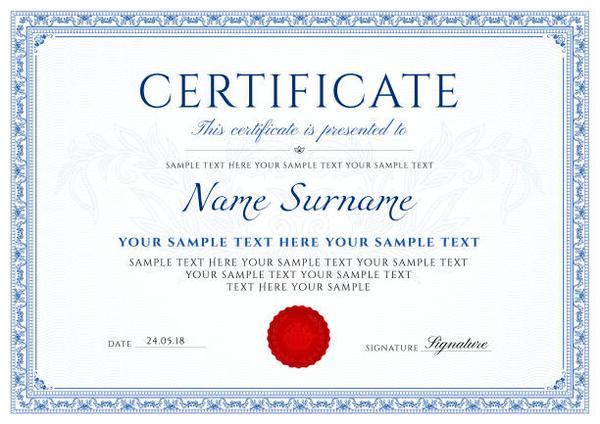There are a variety of companies that provide fake degrees online. They create certificates with the appearance of holograms, as well as stamps and signatures, as well as other components that are like those offered by universities.
Reference checks are a great way to detect fake credentials. This can be accomplished by contacting the personal and professional references.
Counterfeit Diplomas
People who purchase fake diplomas aren’t usually accused of committing any crime. It is crucial to understand the difference between a genuine diploma and a fake one. The novelty diploma is simply an item of paper with your name printed on it. It is possible to display it on your wall, or show it to your friends the diploma as a source of entertainment. The purchase of a novelty certificate is not illegal, and it is not prohibited to frame or display it in your home.
A degree in real life is a document that confers rights and obligations on a graduate. They are considered property, and the graduates are entitled to a fair return on the investment they made in their training.
Fake diploma mills are the result of the need for diplomas from people especially those who cannot afford the cost of attending legitimate educational institutions. They could be motivated by a desire to improve their prospects in the future, or perhaps by the need to escape financial limitations.
Employers use qualifications and degrees to determine the suitability of a candidate for the job. False documents could undermine the process and lead to an unhygienic work environment. Therefore, it is vital to conduct a thorough background screening procedure that includes the verification of the degrees. This will safeguard your business from fraud, and ensure that the applicants you choose to hire are qualified to be hired for the position.
Diploma Mills
Degree mills that offer degrees that do not require a high degree of academic accomplishment. These fake degrees are typically given for work and life experiences, not academic coursework required to obtain a university degree. Both the seller and purchaser of fake degrees could be subject to serious legal penalties that include criminal prosecution, criminal charges, fraud allegations and penalties.
Diploma mills make money from the $900 billion fraud in education market. To stay out of trouble They often operate under states or foreign governments that have inadequate laws regarding education. They employ aggressive tactics to promote their qualifications and recruit individuals who have no or no experience screening applicants and confirming the authenticity of their academic credentials. Credential evaluation offices at colleges and universities and HR professionals in the workplace are responsible to detect these frauds. Reviewers must be attentive to each credential and are able to spot indications that there is a diploma mill involved.
A diploma mill is likely to offer a time-frame that is unrealistic to complete the degree. If someone claims to are able to complete an associate’s degree in only several months or weeks, it’s probably a diploma mill. Other red flags include institutions with names that are like those of a legitimate university, or have names that sound exotic designed to make an impression.
Validation of academic Credentials
It is crucial to check the qualifications of an applicant prior to making a decision to hire them. This ensures that the applicant meets the requirements to be hired and also reduce any legal liabilities that could arise.
It is essential to confirm the legitimacy of an online diploma by using reliable sources like websites of colleges as well as certification boards. These tools offer information on the educational background of an individual and can help identify fake degrees or diplomas.
Contacting the school the applicant claims to have attended is a different method to confirm their academic qualifications. It can be challenging to accomplish if the school is not in existence, or isn’t recognized as an institution by the U.S. Department of Education. Employers must be aware https://lambangnhanh.com/ of warning signs, like the name being unusual or a absence of accreditation.
A digital verification tool like EduVault is another way to validate the authenticity of an online degree. The platform utilizes blockchain technology and decentralized identity technology to provide a clear document of a certificate that is secure. The platform lets users manage their education records and who has access to the information. It’s a great solution to prevent fraudulent activities and ensuring trust in education systems. It also lets institutions quickly and safely issue and authenticate digital credentials.
Fake degrees are dangerous
Since fake diplomas become more commonplace, HR professionals need to be more vigilant when screening candidates. Employing someone with a fake degree could have severe consequences, including legal issues, harm to the image of your business and could pose a threat to safety at work. It is possible to reduce the risk by conducting background checks, which include the services of academic verification like the ones offered by Barada Associates.
Recent revelations about a huge fake diploma business that earns millions of dollars each month in Pakistan have exposed the issue of diploma mills. They are a scam that offer unearned degrees in exchange for cash. Many people purchase fake degrees due to the fact that they cannot pay for the tuition fees at universities or do not have the required grades to be able to graduate. Others use it to enhance their resumes and increase their status in the social scene.
It is often difficult to identify fake credentials because of the demand for these certificates. The criminals who create these certificates are usually multi-national and operate on the internet. They are hard to trace. To combat this issue, a variety of methods are being employed. Many jurisdictions, like are digitizing their degree checking services and combining the data into one database. Another option is punishing or penalizing degree mills and their clients.

